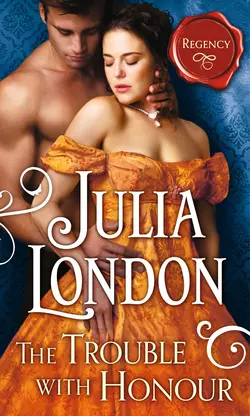The Trouble with Honour

Julia London
Тип: электронная книга
Жанр: Современная зарубежная литература
Язык: на английском языке
Стоимость: 305.03 ₽
Статус: В продаже
Издательство: HarperCollins
Дата публикации: 16.04.2024
Отзывы: Пока нет Добавить отзыв
О книге: “London knows how to keep pages turning.” —Publishers WeeklyPassion and scandal collide in New York Times bestselling author Julia London’s brand new series about four sisters determined to rescue themselves from ruin ….Desperate times call for daring measures as Honor Cabot, the eldest stepdaughter of the wealthy Earl of Beckington, awaits her family’s ruin. Upon the earl′s death she and her sisters stand to lose the luxury of their grand home—and their place on the pedestal of society—to their stepbrother and his social-climbing fiancée. Forced to act quickly, Honor makes a devil′s bargain with the only rogue in London who can seduce her stepbrother’s fiancée out of the Cabots’ lives for good.An illegitimate son of a duke, George Easton was born of scandal and grows his fortune through dangerous risks. But now he and Honor are dabbling in a perilous dance of seduction that puts her reputation and his jaded heart on the line. And as unexpected desire threatens to change the rules of their secret game, the stakes may become too high even for a notorious gambler and a determined, free-spirited debutante to handle.